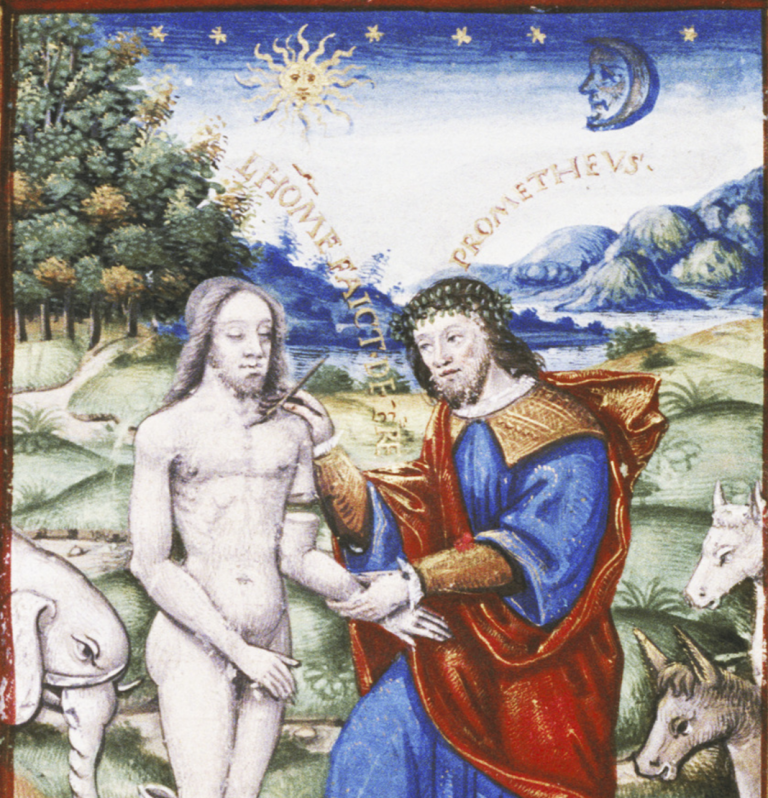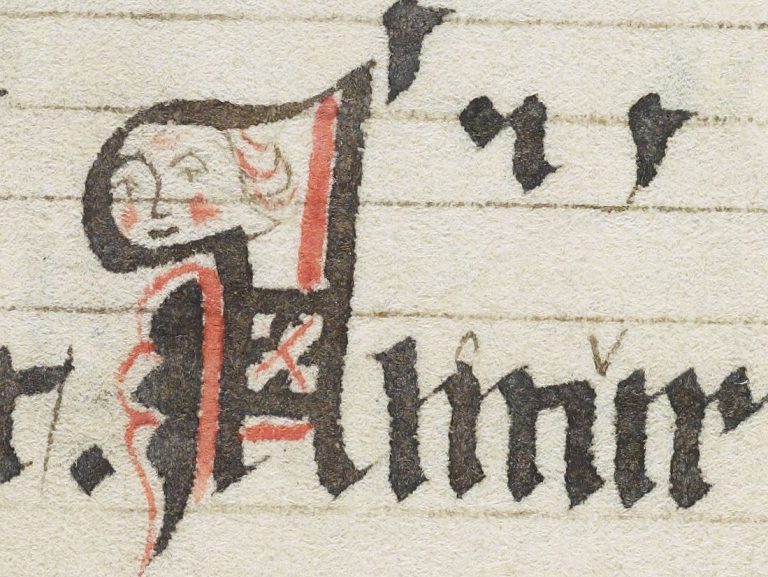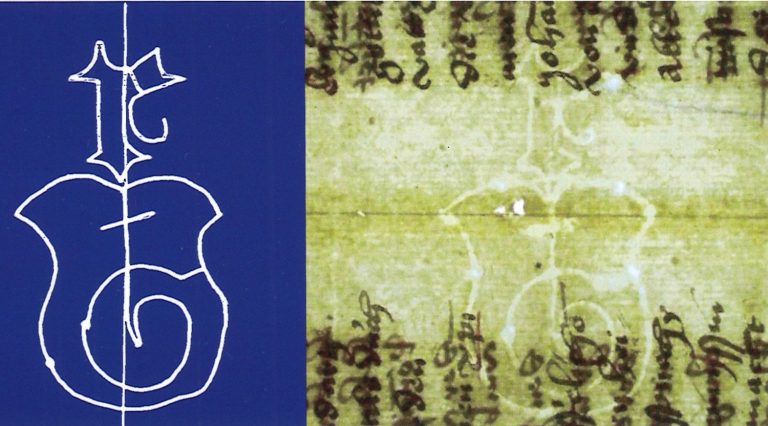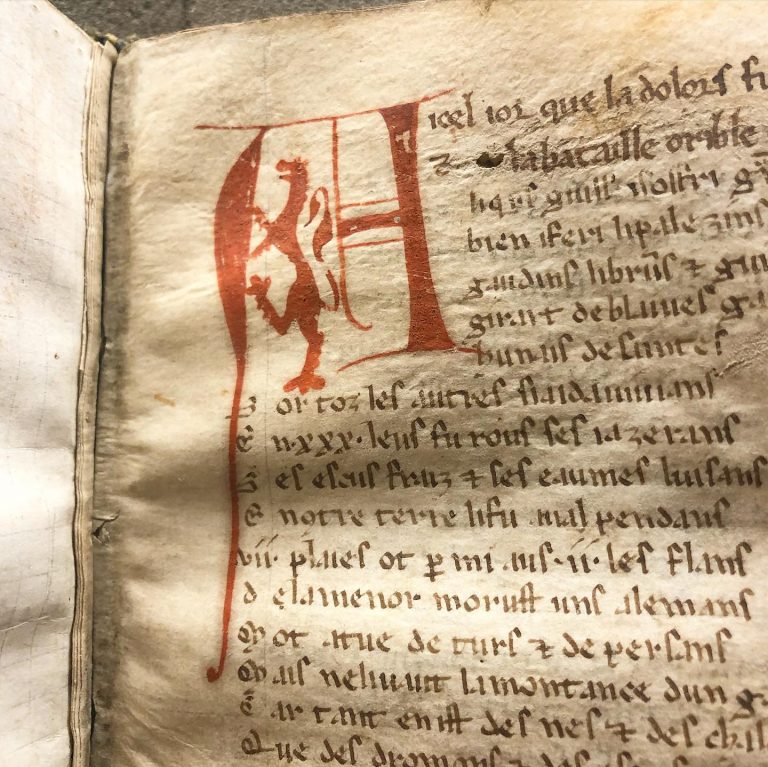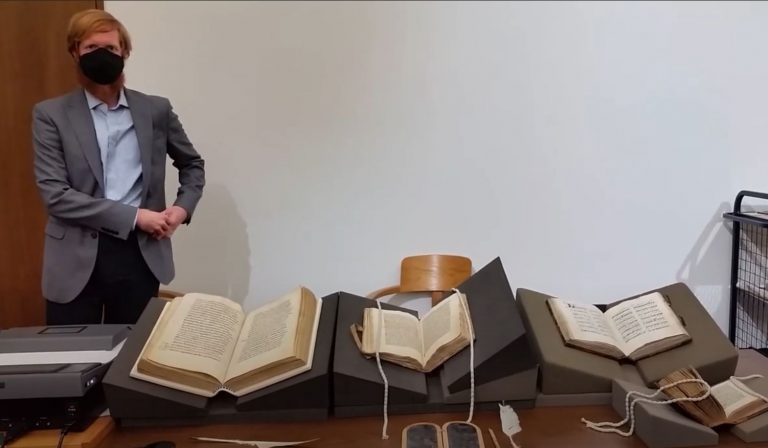A special issue on parchment will appear this September 2021 in Art in Translation Caroline Danforth One’s interests can ebb and flow unpredictably…and I have observed how some of my own passions have quickly bloomed…and then swiftly subsided. One such “flare-up” (which I feared would prove temporary) developed twenty-two years ago after being blind-sided by …
Category: Posts
Ovid Metamorphosed: The Hidden History of MS. Douce 117
Carrie Heusinkveld The narratives lurking just beneath the surface of a book – the intertwining threads of its inspiration, creation, and original owner – are frequently overshadowed by the story told by the visible words on the page. However, investigating this hidden history often uncovers a surprisingly complex web of movements and connections traversing physical, …
Teams Teaching Codicology. The Joy of Opening Manuscripts during Lockdown
Yesterday, in preparation for a Gregorian chant workshop and as part of the History of the Book show-and-tell sessions, Dr Andrew Dunning, R.W. Hunt Curator of Medieval Manuscripts at the Bodleian Library, University of Oxford, opened the Handbook of the Medingen Provost, Bodleian Library MS. Lat. liturg. e. 18. A full digitised copy is available, thanks to …
Reawakening Merton’s Beasts
Sebastian Dows Miller on his History of the Book project, increasing awareness of the Bestiary in Merton College Library, MS 249.
500 Years in the Making: Editing Luther’s De Libertate Christiana
Madeleine Ahern The Taylor Institution Library’s Latin copy of Martin Luther’s 1520 work On Christian Freedom (De Libertate Christiana) sits in the Special Collections storeroom on a rolling stack among an impressive selection of early modern printed texts from the Reformation. The text is identifiable by its shelfmark ARCH. 8o.G.1521.10 and its brown leather re-bound exterior with …
Hidden in Plain Sight: Secret Messages in Manuscript Marginalia
by Charlotte Ross Manuscript decoration enhanced the appearance of a text, increasing the value of the book and bringing a sense of status. The most illustriously decorated manuscripts ooze wealth and sophistication, acting as a statement of the owner’s importance. Even within the manuscript itself, these decorations establish a hierarchy amongst the text, identifying the …
Study Guide: Hitchhiker’s Guide to Digital Methods for Book History
Book history is a rich area for experimenting with digital methods. From digitisation to digital editions, there is inspiration aplenty for your own research projects. In this video, I discuss three examples of digital methods in action: the Voltaire Library Project; a digital edition of the Janua linguarum reserata from the Taylorian Library; and the …
How to Make Watermarks Speak?
Dr Sven Limbeck (Deputy Director, manuscripts and special collections, Herzog August Bibliothek Wolfenbüttel) spoke on Wednesday, 18 November 2020 at the Michaelmas Term Lecture of the Queen’s College “Centre for Manuscript and Text Cultures” In recent years the analysis of watermarks has become a standard method in dating paper manuscripts. This was made possible by the …
The Secret of an Old French Initial
by Charlotte Ross Oxford, Bodleian Library, MS. Fr. e. 32 is a beautiful Old French manuscript that dates to the 12th century. Contained in this volume are the Chevalerie Vivien and an incomplete rendition of Aliscans, two poems from the Chanson de Geste tradition, which deals with French crusading narratives against the Moors and Saracens …
Show and Tell Manuscript Session in the Bodleian Library
Summary of a Show and Tell session for Henrike Lähnemann’s History of the Book students from the Faculty of Medieval and Modern Languages with Dr Andrew Dunning, R.W. Hunt Curator of Medieval Manuscripts at the Bodleian Library.

